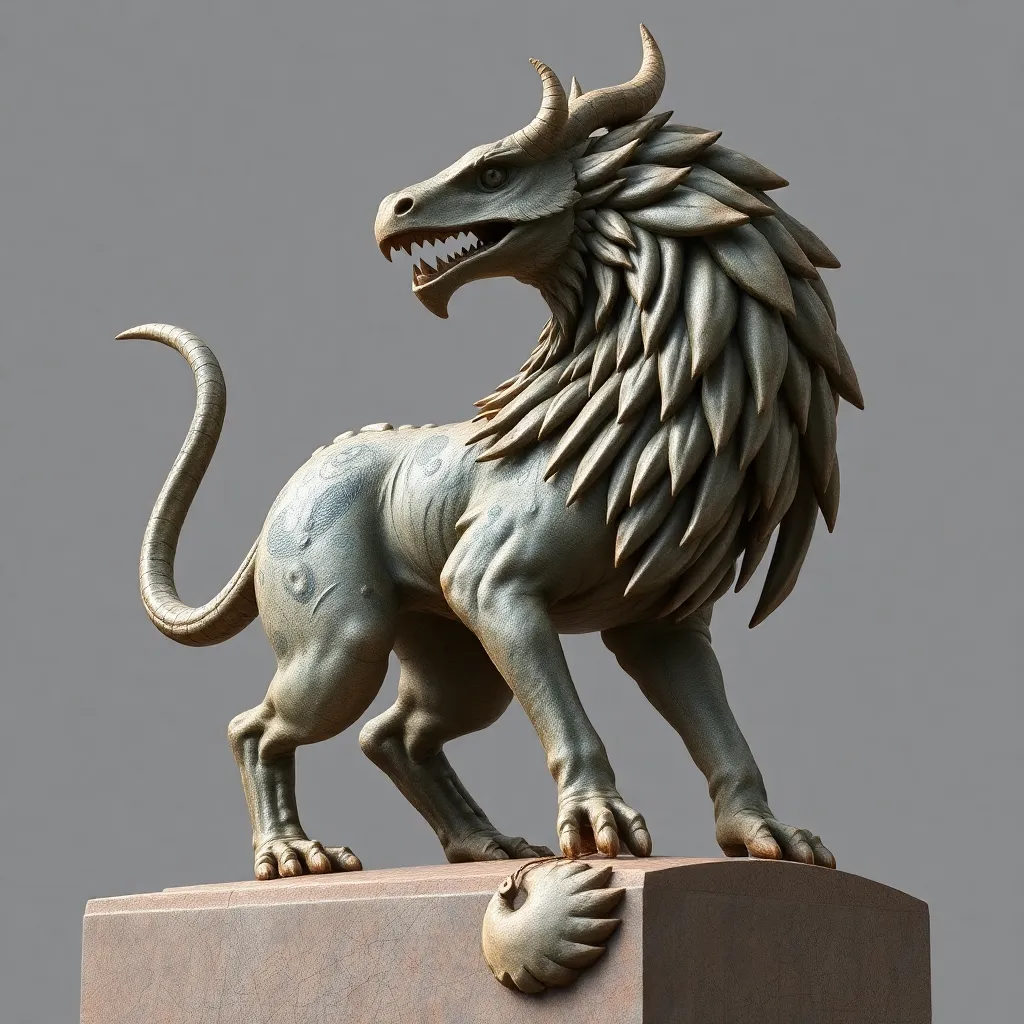The Role of Mythological Creatures in Greek Mythological Research
I. Introduction
Mythological creatures have long been a captivating aspect of Greek mythology, serving as symbols, narrators, and reflections of the ancient Greek worldview. These beings, ranging from gods to monstrous hybrids, play a crucial role in the narratives and moral frameworks of Greek myths. Understanding these creatures is vital for grasping the cultural, social, and religious contexts of ancient Greece.
This article will explore the historical context of Greek mythology, the various types of mythological creatures, their symbolic meanings, and their roles in storytelling. Additionally, we will examine modern interpretations and adaptations of these creatures, the challenges faced in researching them, and the ongoing relevance of these figures in contemporary society.
II. Historical Context of Greek Mythology
The origins of Greek mythology can be traced back to the ancient civilizations of Greece, where oral traditions and cultural exchanges shaped the narrative landscape. Over centuries, these myths evolved, influenced by various historical and cultural factors, including trade, colonization, and interactions with neighboring civilizations.
Mythological creatures held significant importance in ancient Greek society. They were often used to explain natural phenomena, human behavior, and the complexities of life. The geography of Greece, with its mountains, islands, and seas, also played a role in shaping the characteristics and stories of these creatures. The diverse landscapes contributed to a rich tapestry of myths that reflected the complexities of human existence.
III. Types of Mythological Creatures
Mythological creatures in Greek mythology can be classified into several categories:
- Gods: Immortal beings who ruled over various aspects of life and nature, such as Zeus, Athena, and Poseidon.
- Demigods: Offspring of gods and mortals, often possessing extraordinary abilities, such as Heracles and Perseus.
- Monsters: Fearsome beings that often served as antagonists in myths, like the Cyclops and the Chimera.
- Hybrids: Creatures that combine features of different beings, such as the Centaur (human and horse) and the Siren (human and bird).
Iconic examples of these creatures include:
- Centaurs: Representing the duality of man and beast, embodying both wisdom and wildness.
- Sirens: Enchanting beings whose songs lured sailors to their doom, symbolizing temptation and danger.
- Minotaurs: Half-man, half-bull monsters representing the labyrinth of human emotion and the struggle against one’s inner demons.
Each of these creatures carries symbolic meanings that reflect human experiences, desires, and fears.
IV. Mythological Creatures as Reflectors of Human Nature
Mythological creatures often depict traits and behaviors that mirror human nature. They embody various aspects of the human experience, from bravery and wisdom to fear and temptation. These representations serve as moral lessons, illustrating the consequences of certain actions or the virtues to aspire to.
For example, the Hydra, a multi-headed serpent, represents the struggle against overwhelming odds. Each time one of its heads was cut off, two more would grow back, symbolizing resilience and the persistence of challenges. This creature teaches the lesson that some battles require continuous effort and strategic thinking.
V. The Role of Mythological Creatures in Storytelling
Mythological creatures serve vital narrative functions in Greek myths and legends. They often act as obstacles for heroes, testing their strength, intelligence, and morality. The interplay between heroes and these creatures creates compelling stories that impart lessons about courage, sacrifice, and the human condition.
In ancient Greek literature and art, these narratives influenced cultural expression and artistic representation. The tales of heroes like Theseus and his battle with the Minotaur or Odysseus’s encounter with the Cyclops showcase the significance of these creatures in shaping the heroic journey.
VI. Modern Interpretations and Adaptations
In contemporary culture, mythological creatures continue to evolve and inspire new interpretations. Various forms of media, including films, literature, and video games, have reimagined these beings for modern audiences.
- Films: Movies like “Clash of the Titans” and “Percy Jackson & the Olympians” bring ancient myths to life, introducing mythological creatures to new generations.
- Literature: Authors such as Rick Riordan have woven mythological creatures into modern narratives, blending ancient themes with contemporary storytelling.
- Video Games: Titles like “God of War” and “Hades” utilize mythological creatures as central elements in gameplay, allowing players to engage with these legends in interactive ways.
These adaptations not only preserve Greek mythology but also reshape it, making it relevant to today’s cultural landscape.
VII. Challenges in Researching Mythological Creatures
Researching mythological creatures poses several challenges. The limited historical sources and varying interpretations complicate our understanding of these beings. Scholars often face difficulties in discerning the original meanings and contexts of myths due to the passage of time and the evolution of storytelling.
Modern biases can also influence the interpretation of ancient myths. Contemporary values and perspectives may skew the understanding of creatures and their roles in Greek culture.
To mitigate these challenges, interdisciplinary approaches that combine archaeology, literary analysis, and anthropology can provide a more comprehensive understanding of mythological creatures and their significance.
VIII. Conclusion
The study of mythological creatures in Greek mythology is crucial for understanding the cultural, social, and psychological aspects of ancient Greek civilization. These beings not only offer insight into human nature but also illustrate the complexities of the human experience. As we continue to explore their meanings and adaptations, it becomes evident that mythological creatures remain relevant in modern society, reflecting our ongoing struggles, desires, and moral dilemmas.
This exploration invites further research and discussion about these fascinating figures, encouraging a deeper appreciation for the rich tapestry of Greek mythology and its impact on contemporary culture.




